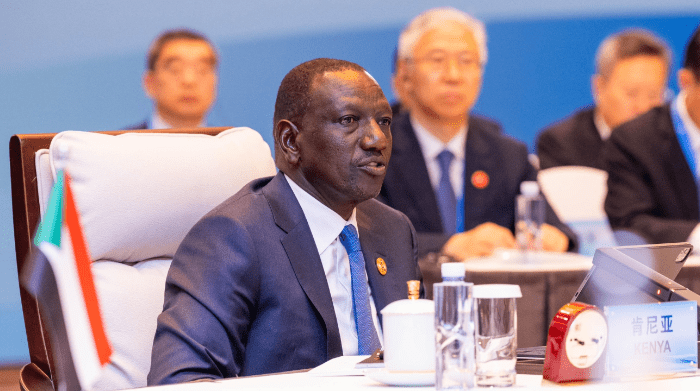Lessons for Kenya on China’s anti-graft efforts
By Stephen Ndegwa, January 9, 2025Corruption remains one of Kenya’s most pressing challenges, undermining public trust, economic growth, and equitable service delivery. Successive governments have declared war on graft, but tangible results have often been elusive.
Kenya could benefit from studying China’s systematic and uncompromising approach to anti-corruption, exemplified by the 20th Communist Party of China Central Commission for Discipline Inspection.
China’s anti-corruption strategy targets both low-level and high-ranking officials, ensuring no one is above the law. This dual approach has been effective in addressing corruption comprehensively. Kenya must adopt a similar framework.
Both petty bribery and grand embezzlement require robust prosecution to demonstrate that impunity is no longer tolerated. This would help rebuild public trust in institutions like the Ethics and Anti-Corruption Commission and the judiciary, which have often been viewed as lenient or ineffective.
China’s focus on sectors directly affecting people’s livelihoods, such as health, education, and rural development, is particularly relevant to Kenya. Corruption in these areas exacerbates inequality and undermines service delivery, particularly for the most vulnerable.
Emulating China’s approach could help Kenya protect resources meant for public services and infrastructure development. Targeting corruption in devolved units, where wastage and theft of funds have become endemic, would be a logical starting point.
A key strength of China’s system is its reliance on technology to uncover and prevent corruption. Advanced tools like big data and cloud computing have helped track illicit financial flows and expose complex bribery schemes.
Kenya’s existing public finance systems, such as the Integrated Financial Management Information System, are often criticised for being prone to manipulation. Investing in technological upgrades and strengthening inter-agency collaboration could close these loopholes.
China’s commitment to punishing both bribe-takers and bribe-givers is another area Kenya could explore. Corruption thrives on collusion, and targeting those who offer bribes would shift the cost-benefit analysis for individuals and businesses engaging in unethical practices. Legislative reforms, coupled with stringent penalties, could deter both sides of the equation.
Localised anti-corruption measures in China have proven effective in addressing embezzlement and misuse of resources at the grassroots level. This is a crucial lesson for Kenya, where county governments manage significant funds but often lack sufficient oversight. Strengthening accountability mechanisms at the local level would ensure that devolved funds are used for their intended purposes.
China’s relentless pursuit of high-profile offenders sends a powerful message about its zero-tolerance stance on corruption. High-profile prosecutions in Kenya, however, are often undermined by prolonged legal processes and perceptions of selective justice.
Demonstrating impartiality and efficiency in prosecuting corrupt individuals, regardless of their social or political status, would restore confidence in the anti-corruption agenda.
The recovery of stolen assets is another area where Kenya could learn from China. International cooperation has allowed China to repatriate fugitives and recover significant sums of stolen wealth.
Kenya should deepen its engagement with global anti-corruption networks to trace and recover assets hidden abroad. Partnerships with initiatives like the Stolen Asset Recovery programme could bolster these efforts and help deter future theft.
Addressing corruption requires more than punitive measures. China’s broader cultural shift towards accountability and integrity demonstrates the importance of creating an environment where ethical behaviour is valued. Kenya could achieve this through public education, integrating ethics training into school curricula, and protecting whistleblowers.
— The writer is a PhD student in International Relations
More Articles

